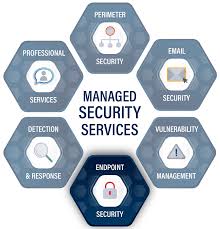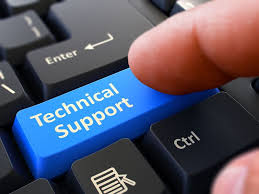Overview: Why Top Managed IT Services Matters for U.S. Small Businesses
In 2025, as technology continues to evolve rapidly, small businesses in the USA must decide whether to build an internal IT team or partner with a managed services provider. This choice isn’t just technical—it affects security, efficiency, costs, and long-term growth. Top Managed IT services vs in‑house IT is no longer a side-by-side comparison—it’s one between fixed overhead and flexible, scalable support. At Remote Expert Solutions (RES), we support American SMBs with strategies tailored to help them operate securely, reliably, and affordably.
What Are top Managed IT Services?
Managed IT services for small businesses involve outsourcing your IT operations to a third-party Managed Services Provider (MSP). Instead of employing IT staff directly, you pay a monthly fee for services like:
- 24/7 help desk support and remote assistance
- Network monitoring and infrastructure management
- Cybersecurity tools like firewalls and endpoint protection
- Data backup and disaster recovery
- Strategic IT consultancy
RES offers a full suite of enterprise-level services at a small-business price, delivering value and predictability without hidden costs.
What Is In‑House IT?
In‑house IT teams consist of employees hired specifically to manage your company’s technology. They handle hardware setups, software maintenance, troubleshooting, and day-to-day IT support. This model offers direct control and on-site presence but comes at a higher cost in salaries, benefits, recruiting, training, and infrastructure.
Cost Comparison: Top Managed IT vs In‑House IT in 2025
For small businesses, the cost equation is crucial. U.S. salaries for a single IT professional range from $75,000 to $120,000 annually—without including benefits or training. A small in-house team of 2–3 people easily surpasses $250,000/year in direct costs. In contrast, managed IT services typically range from $100 to $300 per user per month, translating to $18,000–$54,000 annually for a 15-user operation—covering support, security, monitoring, and strategic planning. With managed services, budgets become predictable and cost-effective.
Flexibility and Business Scalability
A major benefit of managed IT services for small business USA is scalability. You can easily add or reduce services as your needs change—whether you’re adding staff, opening a new location, or supporting remote workers. MSPs adjust quickly without hiring delays or capital investments. In contrast, scaling in-house IT can be slow, expensive, and disruptive.
Expertise and Specialized Support
Technology demands specialized knowledge—from cybersecurity and cloud management to compliance and AI integration. MSPs employ experts across all these domains, staying current with certifications and industry best practices. Small in-house teams, meanwhile, may lack that level of expertise in highly specialized areas like secure compliance training, disaster recovery, or ransomware response. With RES, your business gains access to advanced capabilities without the overhead.
Proactive IT Support vs Reactive Fixes
Managed IT providers deliver proactive support—through constant system monitoring, threat detection, and preventive maintenance. This reduces downtime and security risks significantly. In-house IT often operates reactively—responding to issues as they arise. Smaller teams may be overwhelmed by day-to-day technical problems, leaving little room for automation or proactive fixes.
Cybersecurity in 2025: Why It’s Critical
Cyber threats continue growing, with ransomware and phishing attacks targeting small businesses more than ever. Many in-house teams lack the expertise or tools to proactively mitigate these risks. Managed IT services with cybersecurity solutions provide continuous protection, endpoint security, employee training, and incident response. RES offers enterprise-level security, ensuring your data and reputation stay safe.
Business Continuity & Disaster Recovery
In a crisis—be it hardware failure, server issue, or cyberattack—quick recovery is essential. Managed IT services include built-in disaster recovery plans, offsite backups, and rapid restoration capabilities. In-house setups may lack robust redundancy or tested recovery protocols. With MSPs like RES, your business keeps running even when unexpected events occur.
Day‑to‑Day Efficiency & Productivity
IT disruptions can slow productivity and distract your team from revenue-generating tasks. Managed IT services let your team stay focused on their work while MSPs handle updates, troubleshooting, and system maintenance. This shift significantly reduces operational disruption and supports smoother internal workflows.
Top Managed IT Services: Which Model Fits Small Businesses Best?
For most small businesses in the USA today, managed IT services vs in-house IT is not a question—it’s a solution. While in-house IT may suit large enterprises, MSPs offer small businesses flexibility, predictable costs, expert support, and better security—all in one package. Choosing a provider like Remote Expert Solutions ensures you only pay for what you need and get reliable, proactive service that aligns with your growth goals.
Benefits of Top Managed IT Services for Small Businesses
- Fixed, predictable monthly costs
- Access to expertise across multiple IT domains
- 24/7 monitoring and real-time support
- Robust cybersecurity and compliance enforcement
- Scalable services as your business needs evolve
- Minimal downtime and increased productivity
- Built-in disaster recovery capabilities
- Freedom to focus on core business goals
FAQ’s: Top Managed IT Services
Q1: What exactly are managed IT services for small businesses?
They involve outsourcing your IT operations—support, monitoring, security, consulting—to a third-party provider via predictable monthly fees.
Q2: How much does managed IT typically cost in 2025?
Pricing ranges from $100 to $300 per user per month, depending on support levels and security requirements.
Q3: Is in-house IT cheaper than using a managed service?
Generally not. In-house costs include salaries, hardware, benefits, and training—often exceeding the cost of outsourced support.
Q4: What makes proactive IT valuable?
Proactive monitoring identifies issues before they become critical, reducing downtime and preventing costly disruptions.
Q5: Are small businesses targeted by cyber threats?
Yes—90% of cyberattacks now impact SMBs. Managed IT includes cybersecurity tools, employee training, and 24/7 monitoring to minimize risk.
Q6: How scalable are managed IT services?
Very scalable. You can increase or decrease service levels as your company grows—without hiring delays or capital investment.
Q7: Can I switch from an in-house team to an MSP?
Absolutely. Providers like RES can handle the transition—with infrastructure assessment, migration planning, and seamless onboarding.
Final Thoughts
In 2025, choosing between managed IT services and in-house IT could determine your small business’s ability to grow securely and cost-effectively. MSPs provide reliable performance, expert support, and peace of mind at a fraction of the cost of a full-time team. Remote Expert Solutions is dedicated to helping U.S. businesses leverage the right IT model for success. Whether you’re just starting or expanding, our managed services can help you thrive in a digital-first world.
Ready to optimize your IT infrastructure? Contact RES today and build a security-first, smarter business future.
Contact Us
Admin@remotexpertsolutions.com






